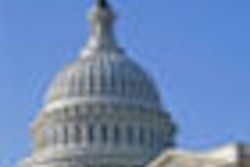
WASHINGTON (Reuters), Jun 9 - An estimated 45 million Americans do not have dental insurance, according to a government report released on Wednesday, and recently passed healthcare reform offers little direct help.
Overall most nonelderly people who already have private health coverage also have a dental policy, but roughly 70% of those who have to buy their own health plan do not, according to the Centers for Disease Control and Prevention (CDC) report.
Under the health reforms passed in March, adults must buy health insurance or pay a fine starting in 2014. The law does not require them to buy other types of coverage like dental or vision, although some comprehensive healthcare plans include the additional coverage.
While health plans must cover at minimum services like emergency care and prescription drugs, they do not have to cover oral care for adults. Dental care for children is required.
Some advocates pushed for a wider dental component in the bill, pointing to the larger impact of oral health on conditions like heart disease and diabetes.
Among the 172 million people under 65 who already have private health insurance, nearly three-quarters have dental insurance too, mostly through an employer, the CDC's National Center for Health Statistics said.
The survey found that among those with dental coverage, 33% had a comprehensive plan with dental coverage, while 26% had a standalone plan. Fourteen percent had both.
Among those with employer-sponsored care, just 20% lacked a dental plan.
The CDC's statistics unit analyzed data from its 2008 nationwide survey of 65,495 people under age 65.
Income factor
Not surprisingly, the researchers found a direct link between income and access to care. The higher a person's income, the more likely they were to have dental coverage.
An estimated 90 million Americans get health insurance through Medicare and Medicaid, which do not cover dental care for adults. But researchers Barbara Bloom and Robin Cohen said they could only look at private sector "because of the limited or nonexistent public coverage for dental care."
It is not clear how the new healthcare law will affect the dental insurance industry. Like its health insurance counterpart, the sector lobbied against any government-run health program while seeking to boost funds for dental care under Medicaid.
Medicaid, which serves 45 million low-income people, pays for dental care for those under 21, but patients can have trouble finding dentists. A separate government program, the Children's Health Insurance Program, also provides limited dental care.
Older Americans can buy separate dental policies from insurers.
Health insurers that offer dental plans include Aetna Inc., Cigna Corp, UnitedHealth Group Inc., Humana Inc., and Assurant Inc., according to the Association for Health Insurance Plans, which represents about 80% of all U.S. dental insurance plans.
Most Blue Cross Blue Shield Association plans, MetLife, and Principal Financial Group Inc. also offer dental coverage, the industry's lobby group said.
By Susan Heavey
Last Updated: 2010-06-09 12:48:11 -0400 (Reuters Health)
Copyright © 2010 Reuters Limited. All rights reserved. Republication or redistribution of Reuters content, including by framing or similar means, is expressly prohibited without the prior written consent of Reuters. Reuters shall not be liable for any errors or delays in the content, or for any actions taken in reliance thereon. Reuters and the Reuters sphere logo are registered trademarks and trademarks of the Reuters group of companies around the world.



















